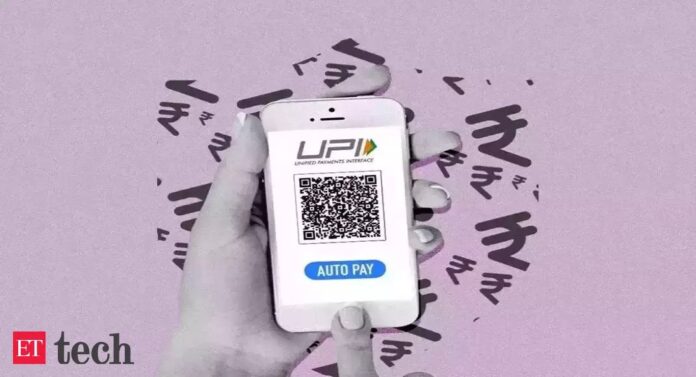Happy Tuesday! The Union Government’s Consideration of Merchant Charges on UPI Transactions
As we dive into another Tuesday, the tech landscape in India is buzzing with significant developments. One of the most pressing topics on the agenda is the Union government’s contemplation of reintroducing merchant charges on Unified Payment Interface (UPI) transactions and RuPay debit card payments. This potential shift could have far-reaching implications for the fintech industry and consumers alike.
Government Weighs Return of Merchant Charges
Recent reports indicate that the Union government is seriously considering a proposal from banks, backed by the Reserve Bank of India (RBI), to reinstate the merchant discount rate (MDR) for large merchants. This proposal comes at a time when the fintech sector is grappling with rising compliance costs and the challenges of fraud prevention, all while UPI remains a dominant yet unprofitable payment method for many fintech firms.
If implemented, the reintroduction of merchant charges could provide a much-needed revenue stream for fintech companies, which have been operating at a loss in their core payments business. Currently, the lack of merchant charges means that these companies earn no revenue from UPI transactions, despite the growing volume of digital payments.
The Financial Landscape: Subsidies and Challenges
Despite the surge in UPI merchant transactions, government subsidies have not kept pace with the industry’s growth. In the last budget, the allocation for payment subsidies was drastically reduced from Rs 3,500 crore to just Rs 437 crore. This sharp decline raises concerns about the sustainability of UPI as a payment method and the viability of fintech companies that rely on it.
The financial implications of this potential policy change are significant. While it could bolster the fintech sector, it may also lead to increased costs for consumers and merchants, potentially dampening the enthusiasm for digital payments that has characterized the Indian market in recent years.
Zepto’s Strategic Moves Ahead of IPO
In other news, Zepto, the quick commerce platform, is taking proactive steps to enhance its domestic ownership ahead of its initial public offering (IPO). The company is exploring various strategies, including a potential buyback of shares from existing investors and the establishment of an Indian Alternate Investment Fund (AIF). These moves are aimed at increasing local ownership and attracting mutual fund investors.
Zepto’s plans to secure $100-150 million through debt financing from its founders to facilitate share buybacks reflect a broader trend among startups seeking to strengthen their domestic investor base. With a valuation of $5 billion, Zepto is positioning itself strategically for its upcoming IPO, which it plans to file through the ‘confidential’ route.
The AI Wave: Former Unicorn Executives Embrace New Ventures
A notable trend emerging in the Indian startup ecosystem is the shift of former unicorn executives towards artificial intelligence (AI) ventures. High-profile figures from companies like Flipkart and Myntra are stepping away from their roles to launch AI-powered startups. For instance, Sandeep Kohli and Sudhir Reddy have co-founded Divyam.ai, focusing on optimizing workloads for generative AI applications.
This trend underscores a growing recognition of AI’s potential across various sectors, with these founders prioritizing product development and market-driven solutions over immediate funding. Their approach reflects a shift in the startup landscape, where the emphasis is increasingly on building robust products that meet market needs.
VC Ecosystem Rebounds: Funding Winter Thaws
The venture capital (VC) ecosystem in India is showing signs of recovery, with total funding reaching $13.7 billion in 2024, a significant increase from the previous year. This rebound is attributed to a rise in deal volumes, public market exits, and renewed investor confidence in high-growth sectors such as consumer tech, fintech, and generative AI.
Consumer tech, in particular, has seen a surge in funding, with platforms like Zepto leading the charge. However, despite this positive outlook, VC fundraising has declined due to a more cautious investment approach and unused funds from previous years. This duality in the funding landscape highlights the complexities of navigating the current economic environment.
Groww’s New Venture: Wealth Management for HNIs
In a strategic move, Groww, the online stock broking startup, is set to enter the wealth management space with a new unit branded ‘W.’ This initiative aims to cater to high-net-worth individuals (HNIs), reflecting the growing demand for personalized financial services in India. As the company prepares for its IPO, this expansion into wealth management could enhance its market position and attract a broader customer base.
Conclusion
As we navigate through these developments, the potential reintroduction of merchant charges on UPI transactions stands out as a pivotal moment for the fintech industry in India. Coupled with the strategic maneuvers of companies like Zepto and Groww, and the burgeoning interest in AI among former unicorn executives, the landscape is evolving rapidly. The coming weeks will be crucial in determining how these trends will shape the future of digital payments and the broader tech ecosystem in India. Happy Tuesday!

